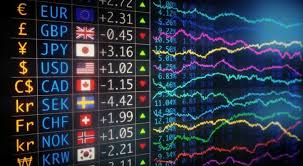
The Ultimate Guide to Forex Trading Accounts: Choosing the Right One for You
Forex trading has gained immense popularity in recent years, driven by the potential for high returns and the accessibility of the market. One of the first steps to entering the realm of forex trading is selecting the right forex trading account. This decision is crucial as it can influence your trading success and overall experience. In this comprehensive guide, we will explore the various types of forex trading accounts, factors to consider when choosing one, and some tips for successful trading. For educational resources on various trading platforms, check out forex trading account Trading Brokers.
Understanding Forex Trading Accounts
A forex trading account is an account you open with a brokerage firm to trade currencies. Simply put, it allows you to access the forex market and execute trades. Different types of accounts cater to various trading styles, risk appetites, and experience levels. Understanding these account types will help you make an informed decision that suits your trading goals.
Types of Forex Trading Accounts
1. Demo Accounts
Demo accounts are an excellent way for new traders to start without financial risk. These accounts use virtual money, allowing traders to practice their skills, test trading strategies, and familiarize themselves with the trading platform. Although they don’t provide real profit opportunities, demo accounts serve as a critical tool for beginners to learn the ropes of forex trading.
2. Standard Accounts
Standard accounts are the most common types of accounts available from brokers. These accounts allow you to trade on any currency pair with standard lot sizes, typically 100,000 units. The minimum deposit for opening a standard account varies by broker, but it usually starts from $1,000. This type of account is suitable for traders who prefer larger trades and are comfortable with having a more considerable amount of capital at risk.
3. Mini and Micro Accounts
Mini and micro accounts are designed for traders who want to trade smaller position sizes while still accessing the forex market. Mini accounts typically operate with lot sizes of 10,000 units, while micro accounts allow for trades of just 1,000 units. These accounts have lower minimum deposit requirements, making them ideal for new traders looking to transition from demo trading to live trading.
4. Managed Accounts
For those who prefer a hands-off approach, managed accounts might be the best option. In this case, you entrust your trading capital to a professional trader or asset manager who handles all trading activities on your behalf. This option is suitable for individuals who may not have the time or expertise to trade effectively themselves but still wish to invest in the forex market.
Factors to Consider When Choosing a Forex Trading Account
Selecting the right forex trading account involves considering several factors. Here are some key points to keep in mind:
1. Trading Style and Experience
Your trading style plays a crucial role in the type of account you should choose. New traders may benefit from demo accounts or micro accounts to practice their skills without significant financial exposure. Experienced traders, on the other hand, might prefer standard accounts to maximize their trading potential.
2. Minimum Deposit Requirements
Different brokers have varying minimum deposit requirements for their forex trading accounts. Be sure to choose one that aligns with your investment budget. Some brokers offer accounts with low minimum deposits, while others may require substantial capital upfront.

3. Leverage and Margin
Leverage allows traders to control a more extensive position than their capital would normally permit, which can amplify both profits and losses. Understanding the leverage ratios offered by different brokers is essential in determining how much risk you are willing to take on with your trading account.
4. Fees and Commissions
Different brokers charge various fees and commissions for their services. Be sure to understand the cost structure associated with the account you are considering. This can include spreads, commissions, withdrawal fees, and inactivity fees. Lower costs can improve your overall profitability.
5. Available Trading Instruments
Not all forex trading accounts offer the same variety of trading instruments. Make sure to choose an account that provides access to the currency pairs and financial instruments you are interested in trading, including commodities, stocks, indices, and cryptocurrencies if you wish to diversify your portfolio.
Tips for Successful Forex Trading
Once you have selected the right forex trading account, you’ll want to implement strategies for successful trading. Here are a few tips to help you along your trading journey:
1. Develop a Trading Plan
A well-defined trading plan is critical for success. Outline your trading goals, risk management rules, and preferred trading strategies. By sticking to your plan, you can avoid emotional decision-making and enhance your trading consistency.
2. Education and Research
Continuous learning and staying updated on market trends are crucial in the forex trading world. Invest time in educating yourself through online courses, webinars, and trading communities. Familiarize yourself with technical and fundamental analysis to help make informed trading decisions.
3. Start Small
When entering the forex market, consider starting with a small investment. This practice allows you to gain experience and understand the dynamics of trading without putting too much capital at risk. Gradually increase your investment as you become more confident in your trading abilities.
4. Use Risk Management Strategies
Implementing risk management strategies is vital for protecting your trading capital. Determine how much of your account you are willing to risk on each trade, and use stop-loss orders to limit potential losses. Diversifying your trades and not over-leveraging can also help reduce risks.
5. Analyze Your Trades
Regularly review your trading performance to identify strengths and weaknesses. Document your trades and analyze the decisions you made. Learning from past experiences can help improve your trading strategies and build confidence over time.
Conclusion
Choosing the right forex trading account is a critical step for anyone looking to enter the forex market. By understanding the different account types and considering relevant factors, you can select an account tailored to your trading style and goals. Remember that success in forex trading requires education, discipline, and a strategic approach. With the right tools and mindset, you can achieve your trading objectives. Happy trading!